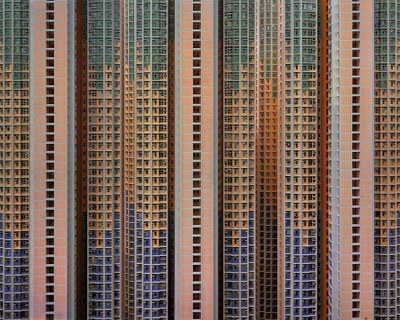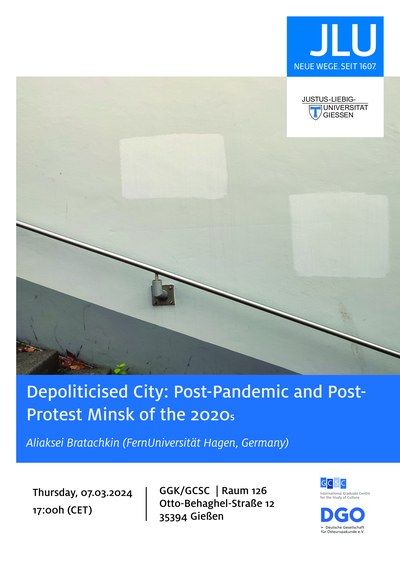Research Area 7: Global Studies and Politics of Space

Culture and space are related as travelling concepts and transversal objects for interdisciplinary research. They can serve as critical frameworks to analyse each other. In this regard, Research Area 7 - Global Studies and Politics of Space is dedicated to research which sets culture and space into dialogue.
RA7 mainly focuses on two groups of questions: How are spaces, places, and locations culturally created, appropriated, circulated, used and destroyed? How are cultures spatially embedded, limited, and connected?
On the one hand, since the cultural turn in the studies of space, researchers have focused on space as a cultural object and on the ways in which it is constructed, configured, and contextually constituted. This turn draws attention to the cultural practices and techniques, rituals and traditions, to ways of imagining and representing physical and mental, abstract and concrete spaces and places. Thus, space is always already cultural.
On the other hand, since the spatial turn in the study of culture, cultures are understood as locally, regionally and globally embedded and embodied by spaces, places and locations. Spatial contexts like geographical landscapes, architectural structures and infrastructures, both materially present and medially presented, can influence how cultures make sense of themselves and their others. Thus, cultures are always already spatial.
In Research Area 7 - Global Studies and Politics of Space we aim to discuss and advance research into this intricate and chiastic relationship. This includes, but is not limited to, discussing theoretical and conceptual texts from cultural, literary, and postcolonial studies, social geography, anthropology, political philosophy, and history related to issues of space(s), place(s), spatiality, and locality. Members of RA7 are encouraged to bring in knowledge from their own research projects and co-organise events such as Master Classes or workshops with invited scholars specialized in RA7’s field of study.
Upcoming events:
7.03.2024 - Depoliticised City: Post-Pandemic and Post-Protest Minsk of the 2020s - Aliaksei Bratachkin

Projects
The RA has sought to address global, cultural, social as well as historical connections and connectivity without an over-reliance on ‘abstract or grand narratives of global transformation’ (Conradson & Latham 2005). This opens up discussions about how bodies experience spaces, contribute to place-making processes and how their existences shape and are shaped by the constant transcendence of what used to be national, cultural, geographical boundaries. Lining up with the so called 'sensory turn' (Adams and Guy 2007), the RA asks how we can analyze localities (concomitantly as constituents and constitutive of globalities) as multi-sensual experiences intrinsically interlinked with transnational relations, national cultures and urban policies amongst others.
The RA7 has recently worked with a strong focus on issues connected to Global Studies and other transnational fields of research aimed at challenging euro-centrism. Topics we discussed include border regimes, constructions of space/place and comparative approaches to “world literatures”. A masterclass with Stuart Elden focused on the materiality of political spaces, extending discussions of volume towards fluid and underground spaces. Such approaches fit well with events featuring Tim Cresswell, who combined perspectives from the geo-humanities with an analysis of the interrelations between mobility and space. The methodology lab “Spatialising Culture: Methods and Approaches to Studying Space” allowed doctoral students to reflect on their projects related to such topics – with the intention of exploring how meaningful spaces are both created by people and embedded in wider social and economic structures.
In addition, RA7 has been actively collaborating with other research groups at the GCSC, thus strengthening the interdisciplinary orientation of the centre. The symposium on “Conceptualizing Sacred Space(s): Perspectives from the Study of Culture”, which was organised by the Culture and Religion ETRG, allowed researchers to engage with fellow scholars from a wide array of fields, such as social science, art and architecture history, religion studies, to unpack concepts such as the sacred and the profane, religious practice, constitution and desacralisation of sacred spaces, global capitalism and sacred spaces, among many others. These various events and approaches continuously help us deepen our understanding of how the political nature of space can vary according to specific regions, cultures, and time periods.
List of participating scholars:
- Prof. Dr. Andreas Langenohl
- Stefano Rozzoni
- Marija Spirkovska
- Anna Tabouratzidis
- Lukas Helbich
- Franziska Müller
- Annika Stendebach
- Edith Ruvalcaba
- Edward Djordjevic
- Dr. des. Cord-Christian Casper
- Sarah Maria Noske
- Giovana de Souza Possignolo
- Vira Sachenko
Contact/Speakers
- Anna Ivanova (Anna.Ivanova)
- Natallia Pazniak (Natallia.Pazniak)
